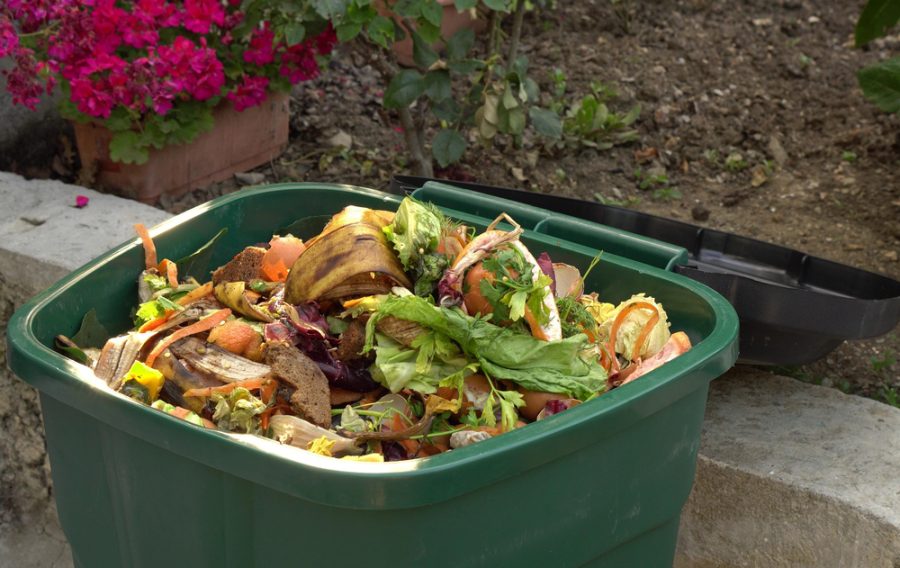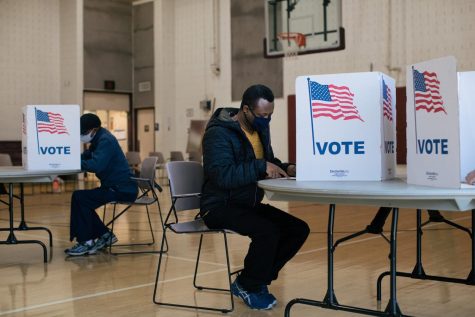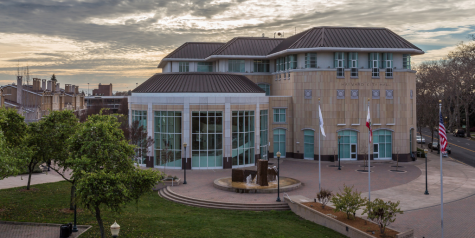California Law Aims to Reduce Climate Change by Recycling Organic Waste
December 10, 2021
California State Bill 1838 is a statewide composting mandate to reduce the amount of greenhouse gas emissions and the harmful effects of climate change.
Effective Jan. 1, 2022, California will enact the Mandatory Commercial Organics Recycling Law in all jurisdictions. California State Bill 1383 requires businesses and residents to recycle organic waste to address the six million tons of food waste Californians throw away annually, according to the California Department of Food and Agriculture (CDFA).
The policy was introduced in September 2016. It was signed into law the same year by Gov. Jerry Brown to reduce short-lived climate pollutants (SCLP). The policy targets to reduce organic waste by 75% by the end of 2025.
The policy aims to reduce greenhouse emissions and minimize the detrimental effects of climate change. Climate change has drastically affected California with hotter temperatures and yearly droughts, causing reduced water supplies and numerous wildfires.
Because of this, many counties have poor air quality. Agricultural and farming hardships have made it more difficult for locals to have fresh produce. Moreover, sea levels continue to rise, resulting in coastal floodings and displacing many families and communities from their homes and beaches.
The bill will require approximately 38.6 million residents and businesses to recycle organic waste and provide organic waste collection services. Residents, schools, and companies are required to subscribe to their jurisdiction’s curbside collection program.
Jurisdictions who do not comply with state regulations will be fined. The state mandate is divided into two tiers. The first tier goes into effect on Jan. 1, including supermarkets, grocery stores, and foodservice distributors. Tier two goes into effect in 2024, adding restaurants, hotels, health facilities, schools, and hospitals to the mandate.
“There’s going to be more enforcement. People will receive warning notices and fines if they are not sorting properly. We are working with Waste Management; they have smart truck technology and use video cameras to record the material coming out of the cart into the trucks. We are required to do monitoring of waste containers. Before this, we will be reaching out to community members and providing education here,” stated Erik Pearson, Environmental Services Manager, Public Works, and Utilities Dept. for the City of Hayward.
In Hayward, the Tennyson community garden reuses organic waste, which helps prevent landfill build-up and the second most harmful greenhouse emission: methane.
“This will help reduce methane emissions, and methane is an even more potent greenhouse gas than carbon dioxide. The Director of CalRecycle was recently quoted as saying, “This is the single fastest and easiest thing each of us can do to address climate change,” continued stated Nurit Katz, Chief Sustainability Officer, Dept. of Facilities Management, University of California, Los Angeles.
The recycled organic waste can be reused for materials such as compost and biofuel. Methane, the second largest contributor to greenhouse gas emissions, is produced when food scraps and paper are decomposed in landfills. The organic waste will be sorted and sent to a facility to be processed into compost or biofuel.
“As this policy indicates, keeping organic waste out of landfill can have a major impact on reducing greenhouse gasses, so composting is definitely an important step students and the community can take- and sorting their waste properly. You can find a lot of other ideas about actions students and the community can take on our solutions central page,” stated Katz.
There are many ways Californians can come together to reduce the harmful effects of climate change by saving organic waste and eliminating the amount of greenhouse emissions pollutants.
“There needs to be a shift globally about the kinds of materials we consume. Hopefully, we’ll have more compostable and reusable materials to help reduce waste materials. Hayward goals are in line with the state’s goals. We are updating our climate action plan to do our part to reduce waste. Ultimately, we want to get our greenhouse gas emissions as close to zero,” concluded Pearson.
For more information on getting involved and doing your part, please visit here.

















